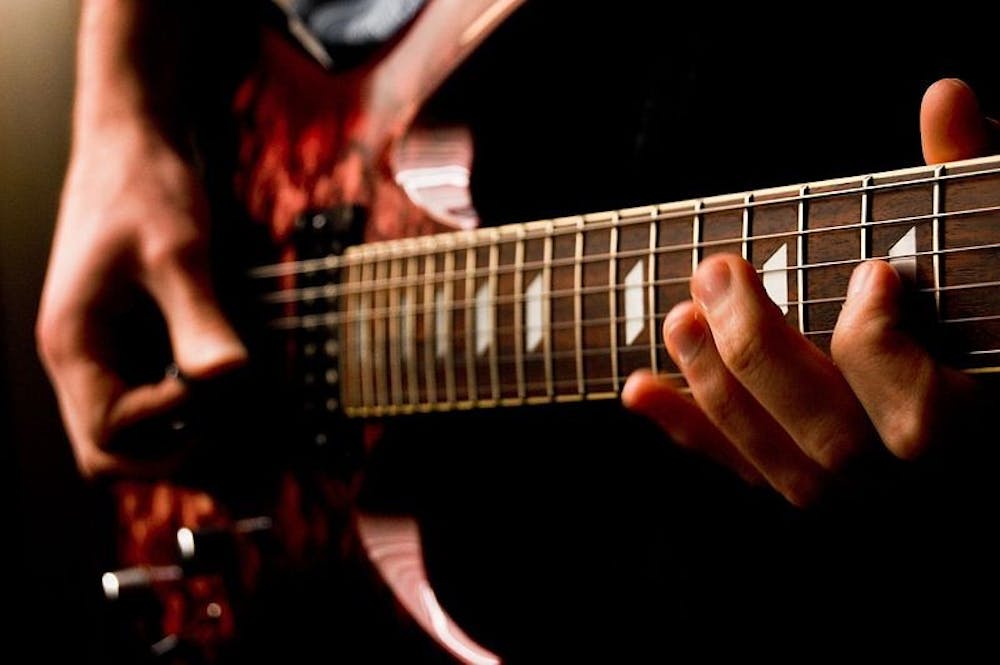Course (re)selection is upon us, my friends, and Street Music is here to give you the lowdown on what music classes to take.
MUSC 070—Music Theory
Dan Kutzin (C '18) has nothing but positive things to say about Music Theory. Though this class is easier for students with musical experience, non–musically–inclined students shouldn’t be discouraged. Dan definitely recommends the course. He said, “Music theory is a great class—you learn the basics of written music but also see how the interactions of notes is consistent across large ensembles or on just one piano. Reducing the complexities of what’s being played to patterns and intervals in the forms of octaves and chords is a cool concept.” Plus, if MATH 104 isn’t your speed, MUSC 070 also fulfills the formal reasoning sector for the College. You’re welcome.
MUSC 030—1,000 Years of Musical Listening
CeCe Sambuco (C '18) raved about 1,000 Years of Musical Listening. For her, this class was a great introduction to studying music in a formal context. She said, “I would recommend it to any students who want to learn more about music—you cover every style from monks chanting to electronic music today. I thought I had a grasp on music history, but this class taught me so much.” In fact, she enjoyed the class so much, she went on to complete the music minor.
MUSC 007—Arabic Choir
Farah Otero-Amad (C '18) will tell you that Arabic Choir is “a great time.” Though singing in a choir, let alone an Arabic one, might sound intimidating, Farah assured Street it was a great introduction into Middle Eastern culture, and that the class spanned from traditional to more current Arab pop music. For Farah, a bright spot was the professor. She noted that, “The professor is enthusiastic and made it easy to learn the Arabic pronunciation and the rhythms of the songs. I would definitely recommend it!”
ENGL 117—The Arts and Popular Culture
It’s incentive enough that taking this class means learning from one of the greats of music writing. Professor Anthony DeCurtis has an impressive career as a music critic—he’s written for Rolling Stone, The New York Times, and appeared on MTV. He also served as a nomination committee member for the Rock and Roll Hall of Fame. If you need more of a reason to take this class, Emilio Frayre (C '19) will convince you. Emilio said, “I really liked the class because, I guess writing–wise, it really helped me explore different genres that I wasn’t able to in high school. And also it pushed me to go into the Philadelphia community, which as a freshman was really cool because you got to meet a lot of people involved with the arts.”
ENGL 084—Family Feuds: Beyonce, Jay Z, and Solange
Last year, Julia Cox taught a class called, “Beyonce, Protest, and Popular Culture.” The class, however, was a Junior Research Seminar, meaning it was available only for English majors. Since the class was such a smash hit, the College has decided to expand it, and is offering another Beyoncé class this semester, open to any of the four schools. Yes, that’s right: you can take a class about Queen B and get credit for it. If Theresa Christensen’s (C '18) experience in the Beyoncé class was anything to go off, it seems as if Family Feuds can only be just as good as its Beyoncé focused predecessor. Theresa said, “I thought that approaching protest movements through Beyoncé was really clever, since the argument of the class was that various musical and cultural movements built off of each other, and Beyoncé represented the modern–day iteration of those movements. Especially after Lemonade came out, people started thinking about Beyoncé as a more political artist, but this class really showed that she was thinking about what it meant to be a black female artist for years before Lemonade. I really enjoyed the class, and would absolutely recommend it to a friend.”
MUSC 005—College Music Program
Little known to most, you can take music lessons for credit at Penn. Sasha Bryski (C ’18) practices the harp on a weekly basis, with teacher Samantha Wittchen. Sasha said that students have lessons once a week, and practice outside on their own. Forget finals—instead, the class culminates with a recital. Sasha said, “I love taking music lessons in the College because it’s completely different from any other class that I’m in for my major or minor. I would definitely recommend it for anyone who’s looking to continue an instrument they played in high school (like me), or someone looking to try something new.”

